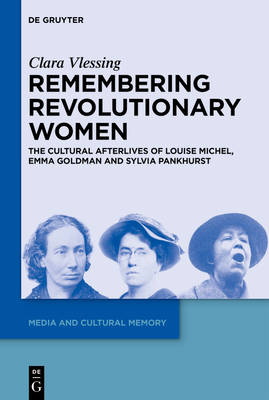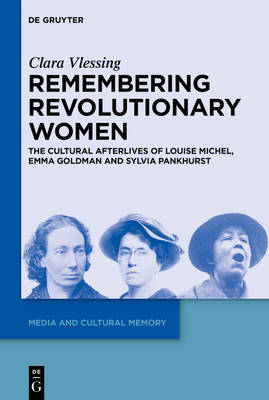
- Afhalen na 1 uur in een winkel met voorraad
- Gratis thuislevering in België vanaf € 30
- Ruim aanbod met 7 miljoen producten
- Afhalen na 1 uur in een winkel met voorraad
- Gratis thuislevering in België vanaf € 30
- Ruim aanbod met 7 miljoen producten
Zoeken
Remembering Revolutionary Women
The Cultural Afterlives of Louise Michel, Emma Goldman and Sylvia Pankhurst
Clara Vlessing
€ 101,45
+ 202 punten
Omschrijving
Remembering Revolutionary Women considers the afterlives of individual revolutionary women and proposes that to understand how they are remembered requires a focus on the active role of remembering subjects and the groups they form; not only asking how memory persists but also why - what motivates people to make the effort to remember revolutionary women? This question is addressed through a comparative analysis of the cultural remembrance of three committed revolutionaries: Louise Michel (1830-1905), Emma Goldman (1869-1940) and Sylvia Pankhurst (1882-1960). The book takes a plurimedial approach to understanding the cultural afterlives of these three women, drawing from biographical works, artistic installations, performances, portraits and archives. It demonstrates the selective process whereby particular moments or themes in an individual's life are remembered with greater frequency and affective charge than others. Remembering Revolutionary Women raises critical questions about the consequences - whether appropriation, sanitisation, individualisation or feminisation - of reclaiming historic women for political ends, bringing original insights to studies of cultural memory, activism, life writing studies and gender.
Specificaties
Betrokkenen
- Auteur(s):
- Uitgeverij:
Inhoud
- Aantal bladzijden:
- 166
- Taal:
- Engels
- Reeks:
- Reeksnummer:
- nr. 46
Eigenschappen
- Productcode (EAN):
- 9783111570846
- Verschijningsdatum:
- 16/02/2026
- Uitvoering:
- Hardcover
- Formaat:
- Genaaid
- Afmetingen:
- 156 mm x 234 mm
- Gewicht:
- 412 g

Alleen bij Standaard Boekhandel
+ 202 punten op je klantenkaart van Standaard Boekhandel
Beoordelingen
We publiceren alleen reviews die voldoen aan de voorwaarden voor reviews. Bekijk onze voorwaarden voor reviews.







